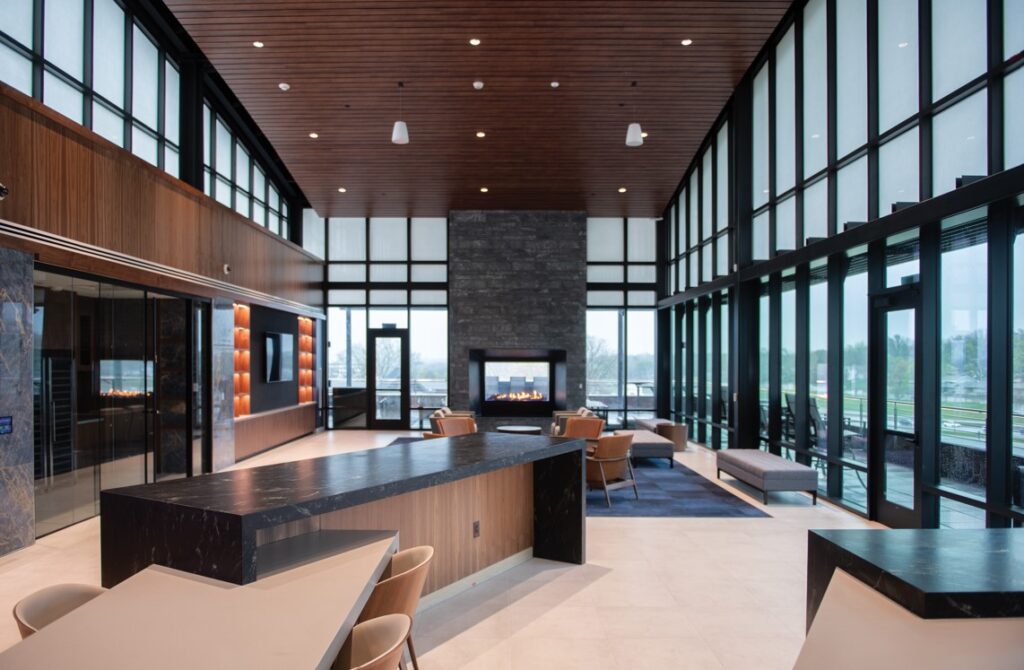Taking stock of the downtown condo market

If you’re a browser, you’re a tire kicker, unless you’re Greater Des Moines businessman Tim Formanek. He’s browsing for a condominium. Real estate agents would describe him as a mechanic.
Formanek has spent about four months shopping the downtown condo market. He talked the good folks at Hubbell Realty Co. into giving him a peek at the old Mitchell Transmission building on Locust Street, and it isn’t even a project yet.
“I like the idea of being in on the concept stage,” said Formanek, an information technology specialist who owns F.I.T. Services LLC.
Formanek lives in Clive and most of his work takes him out of downtown Des Moines, but downtown is where he wants to live.
The condo market, stalled to the point of being out of mind for a lot of people, is thriving, he said, offering variety, quality and access to fine dining, entertainment, creative organizations, recreation trails and, well, the list goes on and on.
“There’s a lot about downtown that appeals to me,” Formanek said. “It has nothing to do with proximity to work.”
At 37, he knows what he wants, and chief among his wants is the ability to plan for the future.
That’s the reason his real estate agent, Steve Seamen of Burnett Realty, persuaded the folks at Hubbell to let his client take a peek inside the Mitchell Transmission building.
Hubbell is committed enough to downtown that it has begun construction of the second phase of the Brownstones on Grand, but it is not ready to pencil in the details of a possible condo development at Mitchell Transmission, said Steve Niebuhr, senior vice president of construction and management services for Hubbell.
“The condo market is not firmed enough to get a lot of projects off the shelf,” Niebuhr said.
Hubbell is noted for reacting to shifts in real estate markets, and for that reason has changed its pricing and some design details for the second phase of the Brownstones on Grand.
It’s that type of nimble thinking that attracts Formanek.
“I think the people who are holding these properties are getting extremely creative with buyers. … Hubbell obviously has figured that out,” he said.
With nearly three years of inventory in the downtown condo and townhome market, there is room for some free thinking.
Formanek said every owner has something special to offer. Whiteline Lofts at 120 S.W. Fifth St. provides snappy design and great views.
Once he buys, Formanek wants to be able to add a personal touch to the place he will call home.
“You do have a lot of flexibility in those spaces. I get the feeling you can dice it up the way you want it,” he said about Whiteline Lofts.
The developers of City Lofts at 111 10th St. are providing that opportunity to slice and dice, too.
Formanek said he is looking for a condo with around 2,100 square feet of space, preferably with two bedrooms and room for an office. And at 37, his life could include marriage in a few years; who knows? That extra space could accommodate an extra person in his life.
City Lofts owners are considering knocking out a wall and combining two units to provide the space Formanek wants.
He likes that “creative” touch. Baldwin White Architects has been involved in the development of City Lofts from the beginning. Steven White, one of the principals in the firm, lives there and he is tossing ideas around with Formanek about designing a unit that will make the two neighbors of sorts.
“I’m eager to see what the architect and (Seamen) have in store,” Formanek said.
City Lofts took another creative approach to sales last year when it launched a lease with option to own program.
After an initial flourish of sales, the condo market downtown slowed along with the rest of the Greater Des Moines housing market. Condo sales also have suffered in the face of tough lending standards that followed the economic crisis and the addition of more than 200 rental units downtown.
Of the 60 condo units at City Lofts, 18 have been sold and 16 are under lease-with-option agreements. Under those agreements, City Lofts residents can put 50 percent of their first-year lease payments toward the purchase price of a condo. The leases can be extended, Seamen said.
At one point, the program applied to any unit in the building, but it now is limited to the second and third floors of the five-story building. The first floor is a parking garage.
The lease units range from $1,450 to $1,750 a month, with $250 of that amount going toward a parking space; water, sewer and trash fees; Internet connection; and satellite television.
Seamen said that although condo sales have been slow, he is seeing more shoppers who are wanting larger homes. Just a few years ago, the demand was for single-bedroom condos and smaller footprints.
City Lofts has dropped its prices to between $213,000 and around $370,000, depending on the size of the unit and its location in the building. Units with views to the west cost a little more; a view of a parking lot to the east might result in a bit of price reduction.
In addition, owners qualify for a tax reduction.
City Lofts also is attempting to have the project certified for Federal Housing Administration (FHA) loans. Under that program, at least 30 percent of units in the building must be sold or under contract. Seamen is two sales away from making that target.
The certification would allow qualifying buyers to make a down payment of between 2 and 5 percent of the purchase price. To qualify, monthly mortgage payments cannot make up more than 29 percent of the purchaser’s monthly income and total recurring monthly debt cannot exceed 41 percent of his or her monthly income, according to the FHA.
Formanek said the FHA qualification isn’t a determining factor on where he will buy. At the moment, just two downtown projects qualify for FHA loans.
“It does help shore up my confidence in the property and its sustainability,” he said.
Seamen said the FHA certification should provide some stability to a lending market that is difficult to understand.
“The banking industry changes daily,” he said.
City Loft residents might not fall victim to those changes, though. Seamen said the development is aimed at upper-income residents, and by way of example points out the number of luxury cars occupying the parking garage.
Still, Formanek said condo owners need to take heed of condo shoppers who understand that they are in something of a buyer’s market.
“It’s going to be price sells property,” he said. “We all have to look at what is economically sustainable for each of us. For people who are single, that’s a pretty straightforward set of math. For families, it becomes more complex. I’m in a situation where my living conditions might change.”
One condition that is certain to change is that he will be living in a downtown condo.







